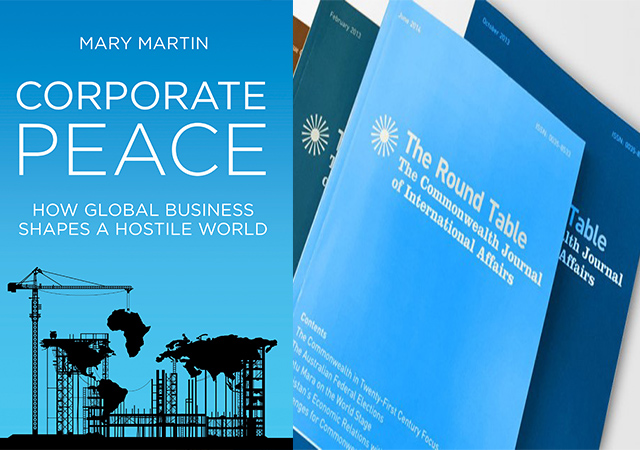
[This is an excerpt from a book review in the current edition of The Round Table: The Commonwealth Journal of International Affairs.]
We live in an age of reassessment, possibly even an age of reckoning. It’s long overdue. Racism, misogyny and the widespread casual tolerance of them are under increased scrutiny. But there are other, related, horrors to confront. Mary Martin’s particular target is the great wrongs perpetrated by corporations which have enriched and still enrich the wealthy at the terrible expense of entire communities, sometimes entire countries and societies.
All of us, surely, think that we already know a great deal about the rape and looting of natural and human resources in the world’s South, particularly in Africa, by ‘big business’. It’s usually been done hand in hand with both local leaders who show no interest in the welfare of their people and foreign governments who rely on the ignorance, indifference or even self-interested acquiescence of their peoples.
However, Mary Martin has much more to tell us. She is unsparing in her detailed case studies of social division, conflict and ultimately mass slaughter actively fuelled by corporate giants in, for example, the Democratic Republic of Congo. Martin examines the appeasement of warlords, (who are often also ‘elected’ leaders), the accommodation of organised criminal gangs and much else from Afghanistan through the Balkans, across much of Africa and South and Central America.
This book, however, goes much further than simply numbing us with a catalogue of corporate horror. It is concerned to tell a messier and unfinished story of halting, very patchy but significant, improvements in some corporate behaviour, particularly in this new millennium. In Mexico City, Mary Martin witnessed efforts by commercial rivals including Unilever to work together and provide greater security for its ice cream van drivers from frequent kidnappings. They have been equipped with panic buttons which trigger company support. It is support which the police were unable or unwilling to provide and this initiative is part of what she sees as a wider recognition of corporate responsibility. That’s at the micro-level, of course. But how about the macro?
The author makes clear: ‘This book is not just about the “bad company” … Nor do I want to suggest that companies mostly do good things’. What makes her book different, however, as well as especially interesting and challenging, is that she points to positive examples of private companies actively collaborating with human rights organisations in efforts to provide security and stability – not always just within the walls and barbed wire of their heavily fortified ‘green zone’ company compounds; sometimes also in the wider, highly dangerous territory outside where most of the local population is obliged to live and try to work.
Perhaps the most interesting chapter in this ambitious book describes a corporate response from Arcelor Mittal, the world’s largest steel and mining company, to the devastating effects of the 2014 outbreak of Ebola virus in West Africa – in Liberia in particular. She describes how the Chief Executives of nine large companies who usually preferred not to lobby as a group came together and sent a letter to the head of the World Health Organisation asking why it was doing little or nothing. A lot changed. The WHO was simply not accustomed to any approach by the private sector. Both sides learned they could work together and harness the business leaders’ detailed local knowledge and strategic thinking as well as their logistics – including vehicles turned over for ambulance duties. More than that, Arcelor Mittal and others taught both international organisations and foreign governments that they shouldn’t patronise villagers by simply issuing top-down instructions to communities who already had bitter experience of tackling infection. Instead, they should listen more and work with them.
If this can all be dismissed by some as ‘enlightened self-interest’, at least it was enlightened and it changed both attitudes and practices for the better.
James Robbins is a member of the Round Table Editorial Board.
Corporate peace: how global business shapes a hostile world by Mary Martin, London, Hurst, 2019.



